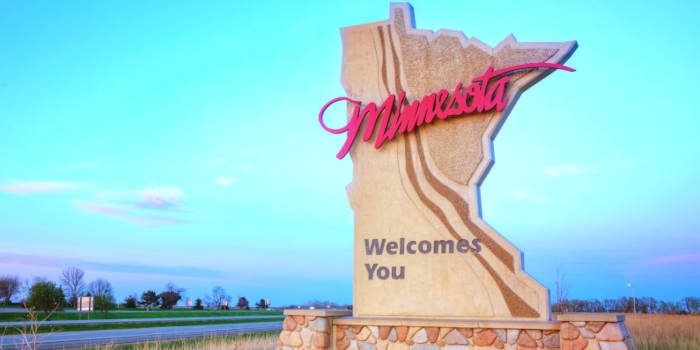At this point in time, legal sportsbook operations are absent in approximately a dozen US states, or still waiting for the appropriate legislation to be put in place. Following the nullification of PASPA by the US Supreme Court in 2018, close to 40 states have since legalized and introduced some form of sports betting. In certain jurisdictions, gambling is allowed solely through retail outlets, whereas in other states, both mobile and brick-and-mortar gambling on sports are accessible. This extended reach at a state level helps to diminish the black market’s prevalence, offers a lawful channel for avid gamblers, and continues to bring in substantial monthly tax revenues.
Still lagging in terms of sports wagering legislation is Minnesota, otherwise known as the Land of 10,000 Lakes. This is despite its adjacent states – Wisconsin, Iowa, South Dakota, and North Dakota – having already enacted laws permitting bets on sports. Legislative authorities in Minnesota are still facing difficulties in drafting a law to regulate betting activities. It’s not that there has been a lack of effort; it’s just that the legislative process is tedious, requiring not just majority approval in both the Senate and the House, but also approval from the state’s tribal groups, a significant player in the process.
Currently in Minnesota, the legalizing of sports wagering has bipartisan backing. There are two different proposed laws for legal betting, both of which did not gain much momentum during the last legislative period and have been retabled. One of them is endorsed by Sen. Matt Klein and has been reintroduced for the current legislative period after failing to move forward previously.
The other proposed law, known as the Minnesota Sports Betting Act 2.0, was put forward by Sen. Jeremy Miller just last month. Much like Klein’s proposed law, Miller’s proposal is also making its second appearance.
Betting Legalization as a Tool for Tax Revenue Generation
In the model proposed by Sen. Klein, sports betting would be taxed at a rate of 10%. A KARE report quoted Sen. Klein’s estimation that, if approved, his proposal could generate a tax revenue of around $40 million annually for Minnesota. Sen. Klein opines on the importance of legalizing sports betting, noting that people in the state already indulge in it through illicit operators or outside state lines. He argues, “Since it’s already happening, we ought to ensure it’s safe, organized, and legal.”
On the flip side, Sen. Miller’s suggestion is for a 15% tax on sports betting revenues, potentially leading to a staggering estimated $60 million in yearly tax revenue upon the legalization of sports wagering.
The future of legal sports betting in Minnesota remains uncertain notwithstanding the presence of these two proposals. The success of this endeavor is tied directly to the state’s tribal agreements, which are likely to insist on exclusivity regarding this betting operation.







